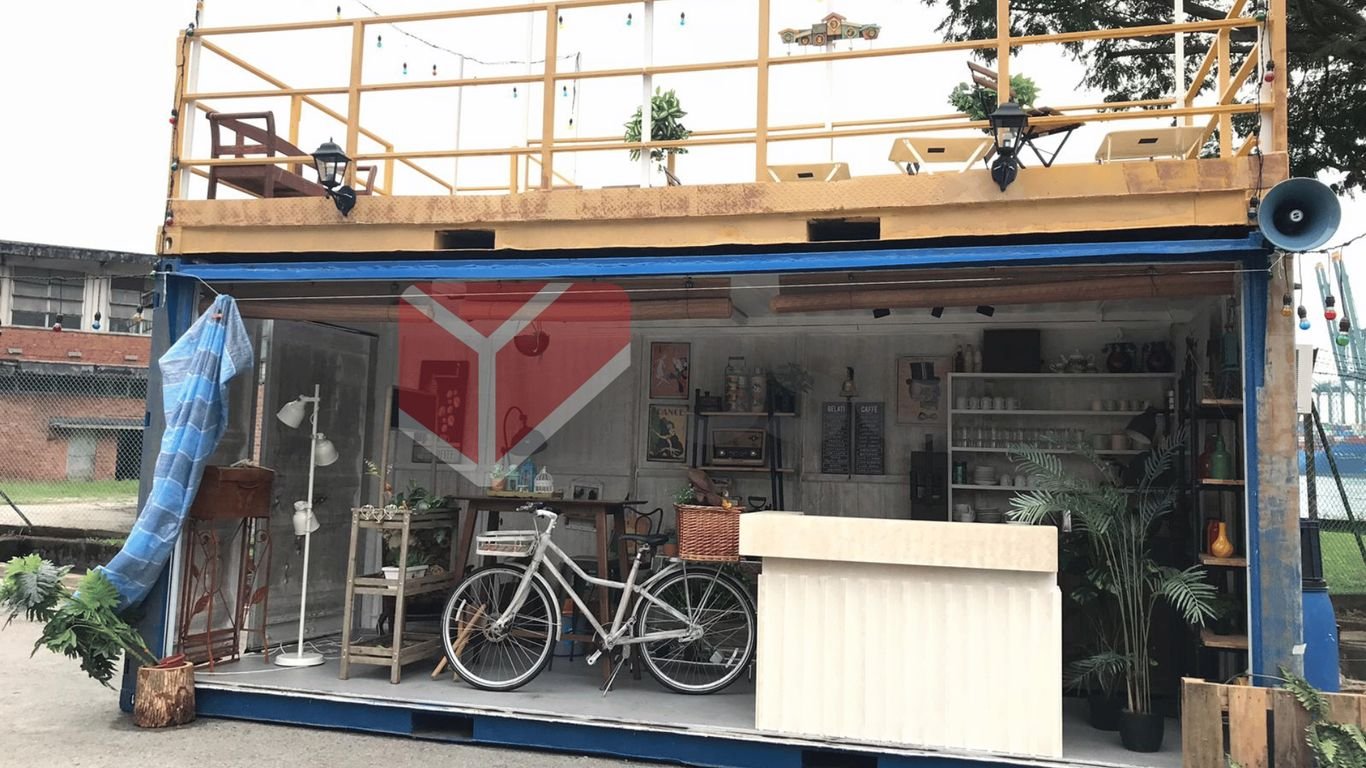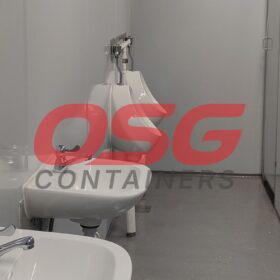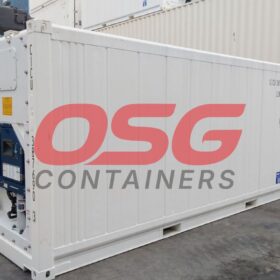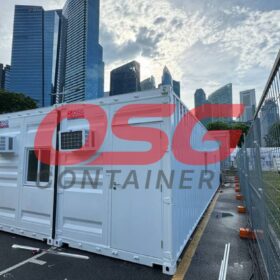In today’s fast-moving business world, companies need solutions that can keep up. That’s where customised container options really shine. They offer a way to get the space you need, exactly how you need it, without a lot of fuss. Think about it – needing an office on a remote job site or extra storage during a busy season. These containers can be changed to fit all sorts of jobs, making them super handy. They’re not just for storage anymore; they’re becoming smart choices for all kinds of business needs, from pop-up shops to extra office space.
Key Takeaways
- Customised container solutions provide businesses with the flexibility to adapt to changing market demands and business needs quickly.
- These versatile containers serve a wide range of industries, including construction, retail, and education, offering practical spaces for offices, shops, and community hubs.
- Repurposing containers offers a cost-effective and durable building material, reducing expenses and providing long-term value through robust design.
- The use of repurposed containers contributes to sustainability efforts by minimizing environmental impact and utilizing recycled materials.
- Customised containers allow for the creation of functional, mobile, and adaptable workspaces tailored to specific business requirements and operational needs.
Unlocking Business Agility With Customised Container Solutions
In today’s fast-paced business world, being able to adapt quickly is key. Customised containers offer a way for companies to get the space they need, when they need it, without the long waits and big costs of traditional building. This flexibility means businesses can respond faster to changing market conditions and seize new opportunities.
Adapting To Evolving Business Needs
Businesses today aren’t static. They grow, they shrink, they shift focus. Having a workspace that can keep up is important. Custom containers are great for this because you can add more units as your team expands or reconfigure them if your operational needs change. It’s like having building blocks for your office.
Responding Swiftly To Market Demands
Sometimes, a new project pops up in a different location, or a seasonal business needs extra space for a few months. Instead of building something permanent that you might not need later, a container solution can be set up quickly and then moved or removed just as easily. This speed is a real advantage when you need to be in the market fast.
Scalable Solutions For Growth
Think about a startup that’s growing rapidly. They might need more desks and meeting rooms every few months. With custom containers, they can simply add another unit to their existing setup. This makes scaling up much simpler and more predictable than trying to manage a traditional construction project alongside day-to-day business operations. It’s a practical way to manage growth without disrupting your current work.
The Versatility Of Customised Containers Across Industries
It’s pretty amazing how much you can do with a simple shipping container these days. They’re not just for hauling stuff across the ocean anymore. Businesses are finding all sorts of creative ways to use them, and honestly, it makes a lot of sense when you think about it. They’re tough, they’re modular, and you can really make them your own.
Construction Site Offices And Accommodations
For construction projects, especially those that are spread out or in remote areas, having a solid base is important. Custom containers can be quickly turned into site offices, break rooms, or even temporary living quarters for workers. This means you don’t have to wait for a traditional building to be put up, which can take ages. You can get a functional space on-site almost immediately. Think about a high cube container singapore – it gives you that extra vertical space, making it feel much less cramped than a standard container office.
Pop-Up Retail And Food Service Spaces
This is where things get really interesting for retail and food businesses. Need to test out a new market or set up a temporary shop for an event? A pop-up container is perfect. You can customize them with display shelves, counters, and even full kitchen setups. They’re eye-catching and can be placed in high-traffic areas without the commitment of a long-term lease on a brick-and-mortar store. It’s a fantastic way to get your product or food in front of customers quickly and affordably. These pop-up container setups are becoming a common sight at festivals and markets.
Temporary Classrooms And Community Hubs
Schools and community groups also benefit a lot from container solutions. When a school needs extra classroom space in a hurry, or a community needs a temporary meeting spot, containers are a great answer. They can be set up quickly and adapted to suit the specific needs, whether that’s adding whiteboards, desks, or even basic plumbing. It’s a practical way to provide needed facilities without a huge upfront investment or a lengthy construction process. They can serve as anything from a quiet study space to a lively community center.
The adaptability of these structures means they can be deployed almost anywhere, providing immediate functionality for a wide range of needs.
Cost-Effectiveness And Durability Of Customised Containers
When you’re looking at solutions for your business, cost and how long something will last are usually pretty high on the list. Customised containers really shine here. They offer a smart way to get exactly what you need without breaking the bank, and they’re built tough.
Think about it: instead of building something from scratch, which involves a lot of labor, materials, and time, you’re starting with a pre-made, robust structure. This alone cuts down on a lot of the usual expenses. Plus, these containers are made from strong steel, designed to handle rough seas and tough weather, so you know they can handle whatever you throw at them on land too. Whether you need an on site storage container for tools and equipment or a more elaborate setup, the base structure is already incredibly resilient.
Here’s a quick look at why they make financial sense and stand the test of time:
- Reduced Upfront Costs: Compared to traditional construction, the initial investment is significantly lower. You’re not paying for all the raw materials and extensive labor that goes into building from the ground up.
- Long-Term Value: The steel construction means these units are built to last for decades, even with heavy use. This durability translates to fewer repairs and replacements over the years.
- Weather Resistance: They are designed to be wind and water-tight, protecting your contents from the elements. This means less worry about damage from rain, snow, or wind.
The inherent strength of shipping containers means they can be repurposed with minimal structural modification, saving both resources and money. This makes them a practical choice for businesses needing reliable, long-lasting structures.
For businesses needing flexible space, like a temporary office or secure storage, custom containers provide a practical and economical answer. You can get a unit that’s ready to go quickly, saving you time and money. Many companies find that renting is a good way to start, offering flexibility without the large initial purchase cost. As your needs grow, you can always consider purchasing. The adaptability means you can configure them with windows, doors, insulation, and even climate control, tailoring them precisely to your operational requirements. This level of customization, combined with their inherent toughness, makes them a standout option for many business needs, from simple storage to more complex workspace solutions like those offered by OSG.
Sustainability Benefits Of Repurposed Containers
Choosing repurposed containers for your business projects is a smart move for the planet. Instead of using brand new materials, we’re giving old shipping containers a new life. This really cuts down on waste and the energy needed to make new stuff. Think about it – a sturdy reefer container that might have been sitting idle in Singapore can be transformed into something useful, like an office or a workshop. It’s a win-win: you get a functional space, and the environment gets a break.
Minimizing Environmental Impact
Repurposing containers significantly reduces the demand for virgin resources. Manufacturing new building materials, like steel or concrete, is an energy-intensive process that often comes with a hefty carbon footprint. By using pre-existing containers, we bypass much of that initial environmental cost. It’s a practical way to contribute to conservation efforts.
Enhancing Corporate Social Responsibility
Adopting container solutions can really boost a company’s green credentials. It shows customers and stakeholders that the business is committed to sustainability. This can lead to a better brand image and attract environmentally conscious clients. It’s about making responsible choices that align with modern business values.
Utilizing Recycled Materials For Construction
These containers are, by nature, recycled materials. They’ve already served their purpose in global shipping and are now ready for a second act. This approach diverts waste from landfills and reduces the need for new raw material extraction. It’s a tangible way to build more sustainably.
- Reduced Carbon Footprint: Less energy used in manufacturing means lower greenhouse gas emissions.
- Waste Diversion: Keeps large metal structures out of landfills.
- Resource Conservation: Decreases the need for mining and processing new materials.
Using repurposed containers is a straightforward method to build more responsibly. It’s a practical application of circular economy principles, turning what might be considered waste into valuable assets for businesses.
Designing Functional Workspaces With Customised Containers
When you think about setting up a workspace, the usual image is a building made of bricks and mortar. But what if you could create a highly functional office, studio, or workshop that’s also incredibly adaptable and cost-effective? That’s where customised containers really shine. They’re not just metal boxes; they’re blank canvases ready to be shaped into exactly what your business needs.
Tailoring Spaces For Specific Business Functions
One of the biggest draws of using containers is how easily they can be adapted for very specific jobs. Need a quiet place for focused work? A container can be outfitted with soundproofing and ergonomic setups. Perhaps you need a small, efficient workshop for prototyping? You can design the interior with built-in workbenches and easy access for materials. The ability to customize the layout means you’re not forcing your business processes into a pre-existing building’s limitations.
Here’s a look at how different functions can be accommodated:
- Office Space: Think comfortable workstations, meeting areas, and even small break rooms. Many businesses are finding that container offices offer a great alternative for remote teams or satellite offices.
- Retail or Gallery Space: With large openings, good lighting, and a unique aesthetic, containers can become eye-catching pop-up shops or art galleries.
- Workshop or Studio: Durable and secure, containers can house tools, equipment, and provide a protected environment for creative or manufacturing work.
Integrating Essential Amenities And Utilities
Getting a container to feel like a proper workspace involves more than just putting a desk inside. You’ll want to think about things like:
- Climate Control: Installing efficient heating and cooling systems, like mini-split units, is key to comfort. Good insulation makes a huge difference here.
- Lighting: Combining natural light from windows or skylights with good artificial lighting, such as LED strips or recessed fixtures, creates a pleasant and productive atmosphere.
- Power and Connectivity: Ensuring you have adequate electrical outlets and reliable internet access is non-negotiable. Solutions like solar panels can even make these spaces more self-sufficient.
Planning the integration of utilities early on is vital. It’s much easier to run electrical conduits and plumbing during the modification phase rather than trying to add them later to a finished space.
Creating Mobile And Adaptable Work Environments
The beauty of a container workspace is its inherent mobility. If your business needs change, or if a project moves to a new location, your workspace can often move with you. This is a massive advantage over traditional buildings that are fixed in place. For instance, a company might use a 20-foot container as a mobile office for a construction site, and once the project is done, it can be easily transported to the next one. This flexibility means your infrastructure can adapt to your business’s evolving needs without the massive cost and time associated with building new structures. It’s a smart way to keep operations lean and responsive to market shifts.
Strategic Advantages Of Choosing Customised Containers
When businesses need to get up and running fast, or when projects pop up in unexpected places, customised containers really shine. They’re not like building a brick-and-mortar place that takes months or even years. With these, you can be operational much quicker.
Rapid Deployment For Immediate Operational Needs
Think about it: you need a new office space, a temporary workshop, or even extra storage, and you need it yesterday. Traditional construction projects can drag on, but a customised container can be delivered and set up in a fraction of the time. This means your team can start working sooner, projects can kick off without delay, and you can start generating revenue or providing services much faster. It’s a real game-changer when time is money.
Mobility For Remote Or Temporary Projects
Sometimes, your business needs to be where the action is, and that might be a remote site or a location that’s only needed for a short while. Customised containers are built for this. They can be easily transported to construction sites, event venues, or any place that requires a temporary presence. This mobility means you don’t have to build something permanent that you’ll have to abandon or dismantle later. You can simply move your operational base as your project or needs shift. It’s a smart way to manage resources, especially for businesses that work on a project-by-project basis or have seasonal demands. Renting freight containers can be a great way to achieve this flexibility without a large upfront cost [bf79].
Cost-Efficient Alternatives To Traditional Buildings
Let’s be honest, building from scratch is expensive. You’ve got materials, labor, permits, and all sorts of overheads. Customised containers offer a way around a lot of that. They’re generally much cheaper than traditional buildings, especially when you consider the total cost of ownership. Plus, their durability means they last a long time, offering good value over the years. For businesses looking to expand or set up new locations without breaking the bank, these containers are a seriously practical option. They provide a solid, secure workspace that’s also budget-friendly [20ed].
- Reduced upfront investment: Significantly lower initial costs compared to conventional construction.
- Lower maintenance: Built to be robust, requiring less upkeep over time.
- Predictable budgeting: Costs are more defined, making financial planning easier.
When you need space quickly and affordably, customised containers provide a practical solution that bypasses many of the common delays and expenses associated with traditional building methods. They are a smart choice for businesses that value speed and fiscal responsibility.
The Flexible Future of Business Spaces
So, when you really look at it, custom containers just make a lot of sense for businesses today. They’re not just about saving money, though that’s a big plus. It’s more about having options. Need a new office fast? Done. Need to move your whole setup to a different site? Easy. Plus, the fact that you can tailor them exactly to what you need, whether it’s for storage, a workshop, or even a cool pop-up shop, is a huge deal. They’re tough, they can be moved around, and honestly, they’re a pretty smart way to handle changing business needs without breaking the bank or waiting forever for construction. It feels like a really practical choice for companies that want to stay nimble and get things done efficiently.
Frequently Asked Questions
What exactly is a custom container solution?
Think of a custom container as a regular shipping container that’s been changed or built in a special way to fit what a person or company needs. You can turn them into offices, places to live, storage areas, or even shops. They’re like building blocks that you can adjust to include things like solar panels or special ways to save water.
Why would a business choose a container office over a regular building?
Businesses pick container offices for a few big reasons. They can be set up really fast, which is great if you need more space right away. They’re also cheaper than building from scratch. Plus, if you need to move your business or a project to a different spot, you can just move the container office with you.
Are these containers good for the environment?
Yes, many custom containers are made by reusing old shipping containers. This means less waste goes into landfills. Using recycled materials and designing them to be energy-efficient, like with solar power, also helps businesses be more eco-friendly.
Can a container be changed to work for different kinds of businesses?
Absolutely! That’s the best part. You can design them to be exactly what your business needs. Whether it’s an office with special desks, a shop with display shelves, or a workshop with tools, they can be set up with things like electricity, lights, and air conditioning.
How long do these containers usually last?
These containers are built tough, usually from strong steel. They’re made to handle bad weather and rough handling. With good care, they can last for many years, sometimes over 20 years, making them a solid, long-term choice.
What sizes do these containers come in?
They come in different sizes, but the most common ones are 20-foot and 40-foot long. There are also smaller 10-foot ones for tight spaces. Some are even taller than usual, which gives you more room to work with inside.
 Singapore
Singapore Australia
Australia Indonesia
Indonesia Japan
Japan Malaysia
Malaysia New Zealand
New Zealand Philippines
Philippines South Korea
South Korea Taiwan
Taiwan Thailand
Thailand VIETNAM
VIETNAM




